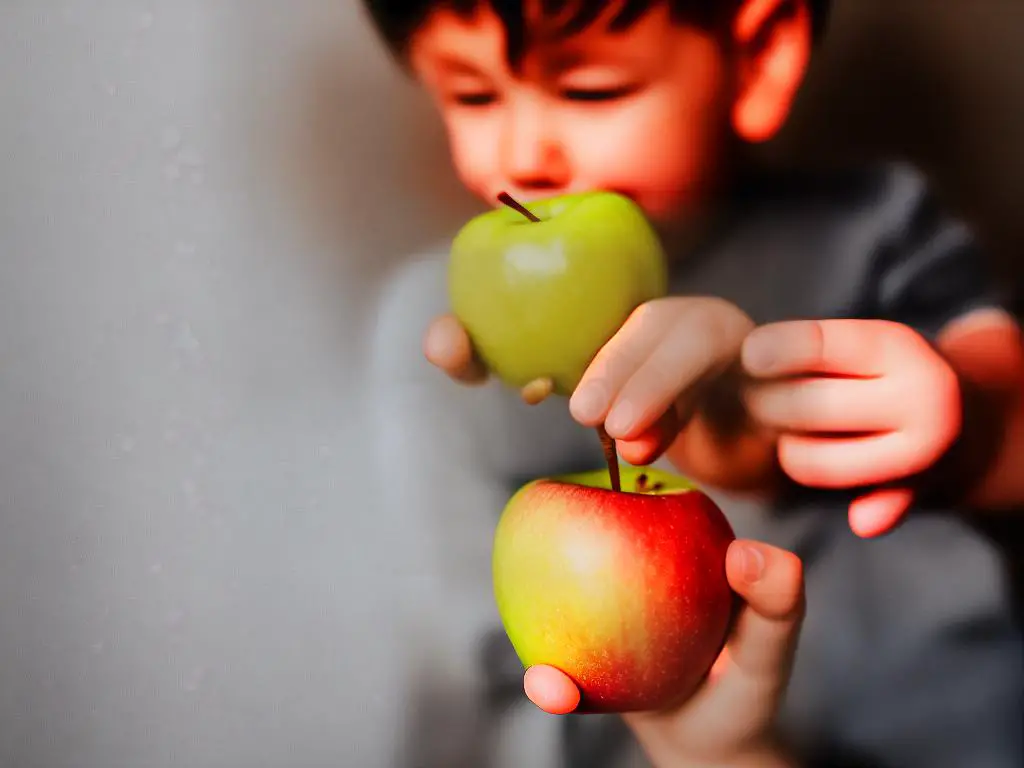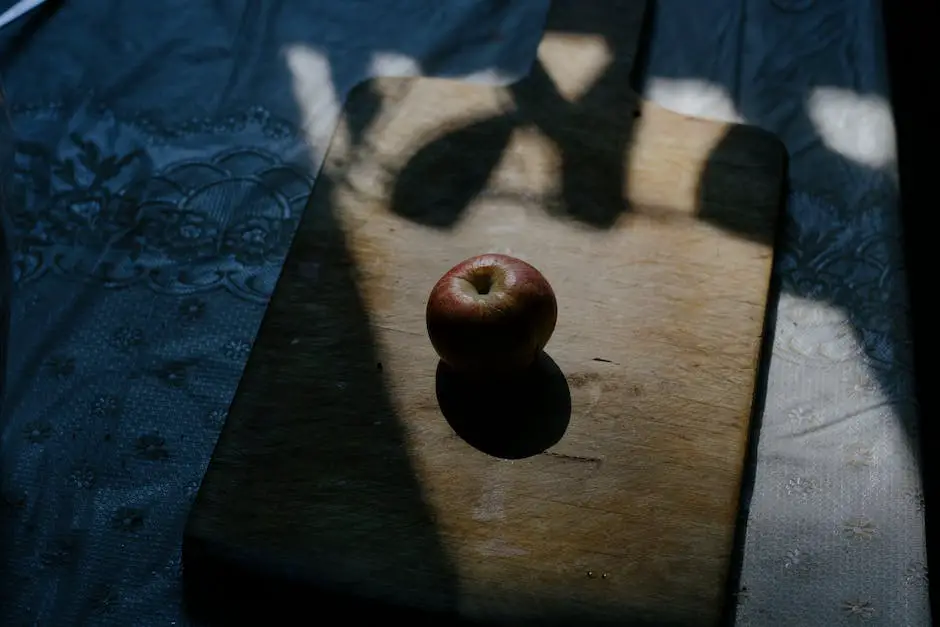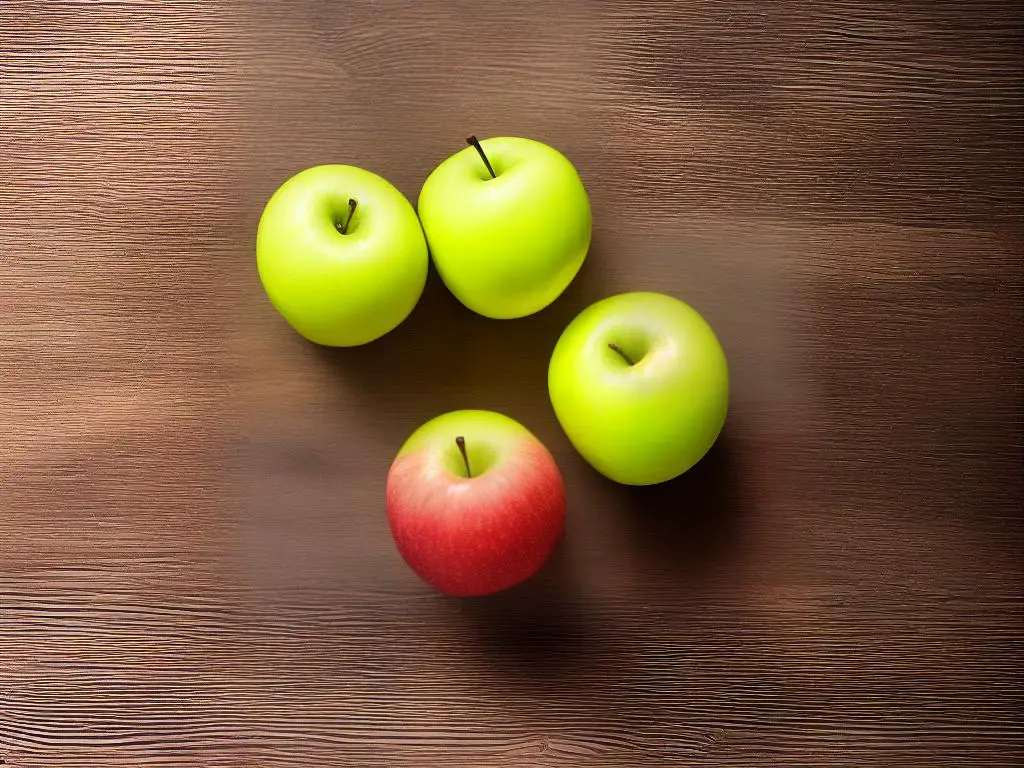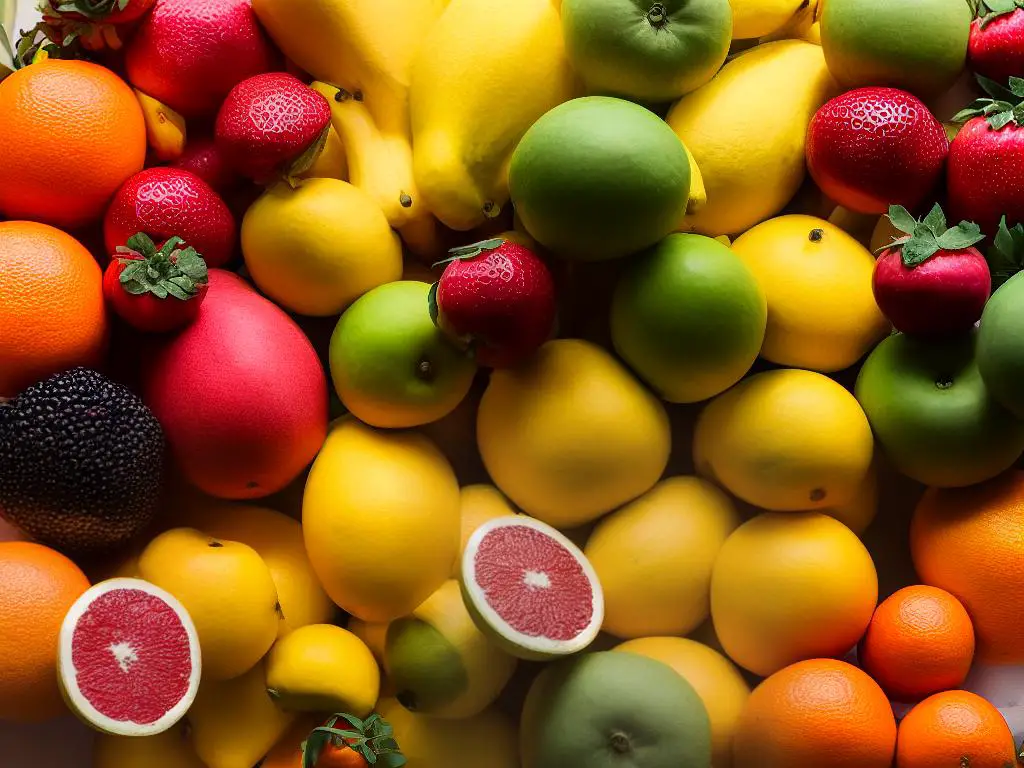When it comes to enjoying a crunchy, juicy apple, those who have orthodontic braces may find themselves with some reservations. After all, apples are known to be a bit tricky for those with braces, as biting into a hard apple can potentially damage the brackets or wires that make up their orthodontic appliances. However, by exploring the concerns, advantages, and safe techniques associated with eating apples while wearing braces, individuals will be better prepared to enjoy this fruit in a manner that is both safe and beneficial for their oral health.
The Concerns of Eating Apples with Braces
One common concern that people with braces might have is whether or not they can eat apples without damaging their orthodontic appliances. Apples are known for their hard and crunchy texture, which could potentially cause problems for those wearing braces. The biting force required to break into an apple could put undue stress on the brackets and wires, possibly leading to dislodged brackets or bent wires.
Another issue that might arise when eating apples with braces is getting apple pieces stuck in between the brackets and wires. This can be both uncomfortable and difficult to remove, even when using special dental devices such as interdental brushes or floss threaders. Furthermore, if these apple pieces are not cleaned out properly, they could contribute to tooth decay and gum disease, as food particles trapped in braces can be a breeding ground for harmful bacteria.
To minimize the risk of damaging your braces or getting apple pieces lodged in them, there are a few strategies you can try. One method is to cut the apple into thin slices and then eat them individually, rather than biting directly into the fruit. This way, you can enjoy the taste and health benefits of apples without putting too much pressure on your braces. Similarly, you can also try grating the apple to create a softer consistency that is easier to manage with braces.
In addition to modifying the way you eat apples, it’s essential to maintain good oral hygiene habits, especially when wearing braces. Regular brushing and flossing, along with using any recommended dental devices, can help keep your teeth clean and prevent food particles from becoming trapped. If you’re unsure whether apples or other fruits are appropriate for your specific orthodontic situation, it’s best to consult your orthodontist for personalized guidance.
If you have braces, you might be worried about eating apples and damaging your orthodontic appliances. Fear not, as there are alternative ways to enjoy the nutritional benefits of apples without causing harm to your braces. For instance, consider incorporating applesauce or apple puree into your diet since the smoother texture is much gentler on your braces and teeth. Alternatively, indulge in a refreshing apple juice, but be mindful of its sugar content and remember to rinse your mouth with water after consuming to minimize the risk of tooth decay. It’s crucial to strike a balance between enjoying the foods you love while keeping your orthodontic appliances in good condition.

Benefits of Apples for Oral Health
Not only are apples delicious, but they also provide numerous advantages for maintaining good oral health. Often deemed as nature’s toothbrush, apples offer natural cleansing properties that help remove plaque and food particles from your teeth. As you bite into an apple, its fibrous texture gently scrubs your teeth, acting as an effective natural cleanser. Furthermore, chewing an apple stimulates saliva production, which aids in washing away harmful bacteria and lingering food debris. This makes consuming apples in their alternative forms not only safe for braces but also beneficial for overall oral health.
Apples also contain a high amount of water, which further aids in flushing away bacteria and food particles from your mouth. This not only helps to keep your teeth and gums healthy, but also helps to freshen your breath. Furthermore, apples are rich in vitamins and minerals, such as vitamin C, which is important for gum health. Vitamin C helps maintain the integrity of the gums and prevents gum diseases like gingivitis.
It is essential to be cautious when eating apples with braces, as the biting force required to chew a whole apple may potentially cause damage to the brackets and wires. However, you can still enjoy the oral health benefits of apples while wearing braces by cutting them into small, bite-sized pieces. This method allows you to savor the nutritious and cleansing properties of apples without putting undue stress on your orthodontic appliances.
As an added precaution, it is always a good idea to thoroughly rinse your mouth with water or brush your teeth after eating apples, especially when you have braces. This ensures that any remaining bits of apple or sugars are removed from your teeth and braces, minimizing the risk of plaque buildup and tooth decay.
Apples are known for their natural cleansing properties and oral health benefits, making them a valuable addition to your diet, even when you have braces. As a person with braces, it’s essential to consume apples safely and practice appropriate dental care after eating to maintain healthy teeth and gums.

Ways to Eat Apples Safely with Braces
One safe technique for consuming apples with braces is to cut them into small, bite-sized slices. This method makes it easier to chew the apple without applying pressure on your braces. Smaller pieces allow you to place the slices directly on your back teeth and chew with caution. It is crucial to avoid biting into a whole apple, as this can damage brackets and wires. By cutting the apple into smaller slices, you can prevent breakage and enjoy the oral health benefits that apples have to offer, even with braces.
Another effective method for eating apples with braces is by using an apple corer to remove the core. This tool can extract the hard center of the apple with ease, making it easier to then cut the apple into smaller pieces. Once the core is removed, it is still important to cut the apple into small slices before consumption, as this will help prevent any damage to the braces. Apple corers can be found in most kitchen supply stores and are a great investment for individuals with braces who enjoy apples.In addition to cutting the apple into small slices, a helpful tip is to soften the apple before consuming it. Apples can be softened by briefly microwaving them or sauteing with a bit of water in a pan over low heat. Softening the apple allows for easier chewing, therefore putting less strain on the braces. This method can be especially beneficial for individuals who have recently had their braces tightened and may be experiencing tenderness in their teeth.When consuming apple-based products, such as applesauce or apple pie, individuals with braces should also be cautious. Although these items generally do not pose a threat to braces, it is essential to watch out for any large apple chunks that may have been mixed in. If possible, opt for applesauce and apple pies with smoother textures, as this can help prevent any potential damage to the braces.Maintaining proper oral hygiene while wearing braces is essential, and this includes being cautious when eating apples or any other food. Food particles often get trapped in the braces, leading to tooth decay and gum irritation. By carefully cleaning around the brackets and wires after each meal, individuals with braces can ensure their teeth remain healthy and clean, reducing their risk of oral health problems during and after orthodontic treatment.

Alternative Fruits for Those with Braces
Although enjoying hard or crunchy foods like apples might be difficult for those with braces, there are ways to adapt. The force required to bite into an apple could result in broken brackets or bent wires, causing discomfort. As a result, it is essential to seek alternative fruits that individuals with braces can safely consume to ensure that they receive the necessary nutrients. Fortunately, several braces-friendly fruits can satisfy cravings without compromising orthodontic progress, allowing individuals to enjoy a variety of fruits while wearing braces.To enjoy the delicious flavor and valuable nutrients of apples without putting braces at risk, individuals can try consuming applesauce or thinly sliced apples. This way, they retain the taste and nutritional benefits of apples while avoiding the potential harm caused by biting into a whole apple. Additionally, there is a wide range of other soft fruits that can be considered braces-friendly options.Berries such as strawberries, blueberries, raspberries, and blackberries make for excellent alternatives. They are typically soft and easy to chew, which is ideal for those with braces. These fruits are also high in antioxidants and vitamins, making them a yummy and nutritious snack option. Similarly, bananas are another soft fruit packed with vital nutrients like potassium and vitamin C. They are easily mashed or blended into various snacks and meals, and their natural sweetness makes them a popular choice.Citrus fruits, including oranges, tangerines, and grapefruits, can also be excellent options for braces wearers. These fruits can be peeled and separated into bite-sized pieces, making them simple and safe to consume. The juicy nature of these fruits ensures a pleasant eating experience and offers a significant dose of vitamin C to boost the immune system and promote healthy gums. Additionally, kiwis and mangoes are other soft, tropical fruits that provide a range of vitamins, antioxidants, and pleasant flavors.Lastly, consider incorporating melons and avocados into your diet if you have braces. Watermelon, cantaloupe, and honeydew melon can be cut into small pieces for easy chewing and are refreshing options in warmer months. Avocado, though technically a fruit, may not have the sweetness typically associated with fruit. However, it is packed with healthy fats and vitamins and can be mashed, sliced, or blended into various recipes, making it another excellent choice for those looking to expand their fruit consumption while wearing braces.In summary, prioritizing braces-friendly fruits is essential to prevent orthodontic damage while maintaining a healthy and balanced diet. There are plenty of delicious and nutritious alternatives to harder fruits like apples, allowing for variety in your food choices while keeping your braces intact. Opting for softer fruits such as berries, bananas, citrus options, or melons will not only protect your braces but also contribute to your overall well-being.

Maintaining Oral Hygiene with Braces
Maintaining proper oral hygiene while wearing braces is of utmost importance, as braces can easily trap food particles between the brackets and wires. This can potentially lead to a variety of dental issues, such as cavities, gum inflammation, and bad breath. Adapting your diet and the way you consume certain foods, particularly those that are hard, sticky, or crunchy like apples, is a significant challenge for individuals with braces.
Although apples can still be enjoyed while wearing braces, it is essential to be mindful of how they are prepared and consumed. Doing so will help avoid damage to the braces and ensure a healthier and trouble-free orthodontic treatment.
Cleaning your teeth with braces
Cleaning your teeth with braces requires more attention to detail and time compared to cleaning teeth without braces. Using the appropriate cleaning techniques and tools is essential in keeping your teeth healthy during orthodontic treatment. One such tool is an interdental brush, which is designed to clean between the brackets and beneath the wire. This brush can help remove trapped food particles and plaque, which is especially important after consuming foods like apples.
A water flosser as a helpful tool
Another helpful tool for maintaining oral hygiene while wearing braces is a water flosser. Unlike regular floss, a water flosser uses a high-pressure stream of water to clean between teeth and around brackets, making it easier to remove food particles such as apple bits. Water flossers may be particularly useful for those with braces as they are gentle on gums and effective at removing plaque without the hassle of maneuvering traditional floss around the brackets and wires.
Using orthodontic wax
Orthodontic wax may also be effective in protecting your braces and maintaining oral hygiene while enjoying hard or crunchy fruits like apples. Applying orthodontic wax around brackets and wires can help prevent damage from biting into a hard food item. Moreover, it is essential to cut apples into small pieces or slice them thinly instead of biting directly into them to prevent brackets or wires from being damaged or dislodged.
Conclusion
In conclusion, it is possible to enjoy apples even while wearing braces, provided that proper precautions are taken to protect your orthodontic appliances. Regularly using tools such as interdental brushes, water flossers, and orthodontic wax can assist in maintaining oral hygiene and ensuring your braces remain intact throughout the treatment period. Additionally, modifying the way you consume foods like apples by cutting them into manageable pieces is a crucial practice for maintaining oral health during orthodontic treatment.

Though navigating the world of braces can be daunting, it is essential to ensure that individuals maintain a balanced diet while simultaneously looking after their orthodontic appliances and oral hygiene. By incorporating safe techniques when eating apples and considering alternative fruits that are brace-friendly, those with braces can enjoy the nutritional benefits of having a varied diet. Simultaneously, being mindful of proper cleaning and maintenance practices will help sustain oral health during the teeth-straightening journey. Overcoming the challenges associated with braces is achievable, allowing individuals to relish in the joy of a healthier, more confident smile in the long run.